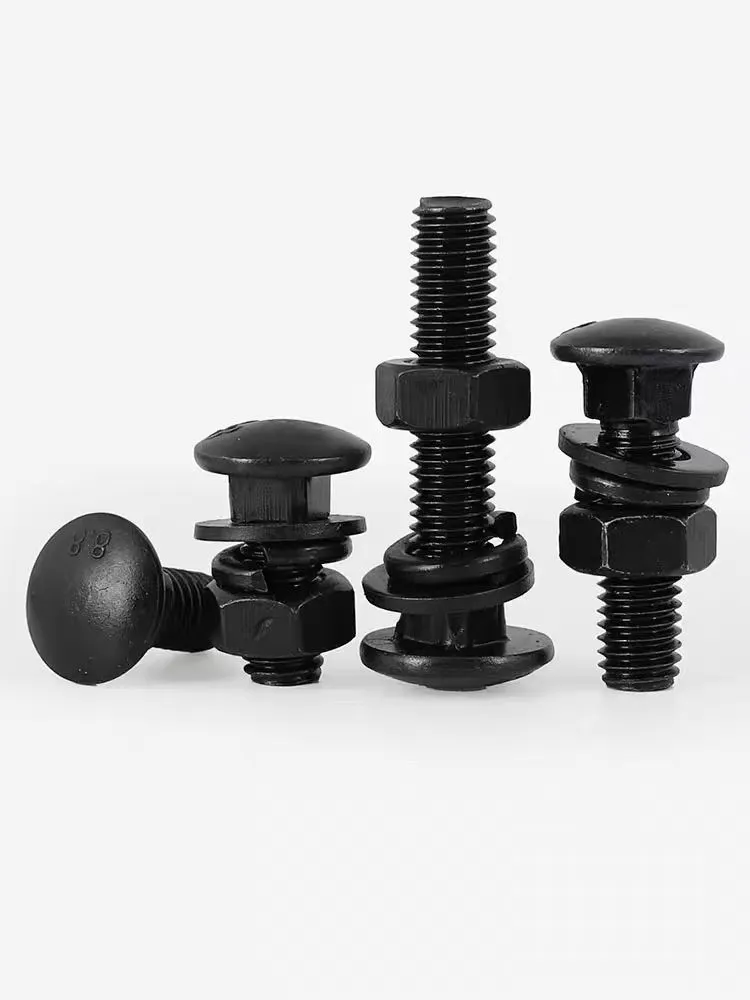

self tapping screws for grounding
Dec . 30, 2024 02:18 Back to list
self tapping screws for grounding
The Importance of Self-Tapping Screws for Grounding Applications
When it comes to electrical systems, safety and reliability are paramount. One crucial component that often goes unnoticed but plays a significant role in ensuring safety is the grounding system. Within this system, self-tapping screws emerge as unsung heroes, providing the necessary secure connections for grounding applications. This article will delve into the importance of self-tapping screws in grounding, their benefits, applications, and best practices.
Understanding Grounding
Grounding is the process of connecting electrical systems to the earth, which serves as a protective measure against electrical faults. A properly grounded system ensures that excess electrical energy can be safely diverted, minimizing the risk of shock, fire, and equipment damage. Grounding systems typically consist of ground rods, plates, and conductors, all of which require secure fastening methods for optimal performance.
What are Self-Tapping Screws?
Self-tapping screws are specially designed fasteners that can create their own threads in various materials, including metal, wood, and plastic. Unlike traditional screws that require pre-drilled holes, self-tapping screws can efficiently penetrate surfaces while forming a tight fit. This unique feature makes them ideal for grounding applications, where secure and reliable connections are crucial.
Benefits of Using Self-Tapping Screws in Grounding
1. Ease of Installation One of the main advantages of self-tapping screws is their ease of installation. Electricians can quickly secure grounding connections without the need for elaborate tools or pre-drilled holes. This not only saves time but also reduces labor costs.
2. Strong Connection The threads created by self-tapping screws form a strong mechanical bond with the material they are inserted into. This ensures that grounding connections remain secure, even under adverse environmental conditions. A strong connection is particularly important for grounding as it helps maintain a low-resistance path for electrical faults.
3. Versatility Self-tapping screws come in various sizes and materials, making them suitable for a wide range of grounding applications. Whether fastening a ground rod in soil or securing a grounding wire to a metal junction box, there is a self-tapping screw available to meet the specific needs of the job.
4. Corrosion Resistance In many grounding applications, exposure to moisture and other environmental factors can lead to corrosion, which compromises the effectiveness of the grounding system. Many self-tapping screws are made from corrosion-resistant materials such as stainless steel or are coated with protective finishes, ensuring longevity and reliability in diverse settings.
self tapping screws for grounding

Applications of Self-Tapping Screws in Grounding
Self-tapping screws are widely used in various grounding applications. Some common uses include
- Securing Ground Rods Ground rods must be anchored securely into the ground to provide an effective electrical connection. Self-tapping screws can be used to fasten these rods, ensuring stability.
- Mounting Grounding Busbars In substations or commercial electrical panels, ground busbars are essential for connecting multiple ground wires. Self-tapping screws can efficiently secure these busbars to racks or enclosures.
- Connecting Grounding Wires When grounding wires need to be attached to conductive surfaces, self-tapping screws offer a reliable solution. They allow for quick and secure connections without the risk of loosening over time.
Best Practices for Using Self-Tapping Screws in Grounding
To maximize the effectiveness of self-tapping screws in grounding applications, consider the following best practices
1. Choose the Right Screw Type Select a self-tapping screw that is appropriate for the material you are fastening into and the environmental conditions. For example, use stainless steel screws in damp environments to prevent corrosion.
2. Use Proper Torque Over-tightening self-tapping screws can damage the material being fastened. Always follow manufacturer guidelines for torque specifications to ensure a secure connection without causing harm.
3. Inspect Connections Regularly Routine inspections of grounding connections, including self-tapping screws, are essential for maintaining system reliability. Regular checks can help identify and remedy potential issues before they affect system performance.
In conclusion, self-tapping screws play a critical role in grounding applications, offering ease of installation, strong connections, versatility, and resistance to corrosion. By understanding their importance and adhering to best practices, electrical professionals can enhance the safety and effectiveness of grounding systems, ultimately leading to a more secure electrical infrastructure.
Latest news
-
Hot Dip Galvanized Bolts-About LongZe|High Strength, Corrosion Resistance
NewsJul.30,2025
-
High-Strength Hot Dip Galvanized Bolts - Hebei Longze | Corrosion Resistance, Customization
NewsJul.30,2025
-
Hot Dip Galvanized Bolts-Hebei Longze|Corrosion Resistance&High Strength
NewsJul.30,2025
-
High-Strength Hot-Dip Galvanized Bolts-Hebei Longze|Corrosion Resistance&High Strength
NewsJul.30,2025
-
Hot Dip Galvanized Bolts-Hebei Longze|Corrosion Resistance&High Strength
NewsJul.30,2025
-
Hot Dip Galvanized Bolts - Hebei Longze | Corrosion Resistance, High Strength
NewsJul.30,2025

